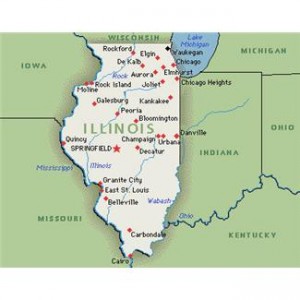Illinois two-year legal malpractice statute of limitations applied to non-client’s aiding and abetting breach of fiduciary duty claim
by Christopher Graham and Joseph Kelly
In 1997, 800 South Wells Commercial, LLC (“800 South Wells”) sold a building complex, including apartments, commercial space, an underground parking garage, a parking lot, and a marina, to a developer. Sometime thereafter, 800 South Wells became owner of long-term leasehold interests in commercial space in the complex and the parking garage. 800 South Wells later mortgaged its leasehold interest.
In 2006, the complex went into foreclosure. During the foreclosure process, 800 South Wells agreed not to contest the foreclosure if it was given an option to acquire the parking garage at cost. 800 South Wells estimated that it would net a $3.5 million profit if it exercised the option and sold the parking spaces. But the manager and vice president of 800 South Wells – namely, Nicholas Gouletas and John Cadden — learned that much of that profit would have to go its creditors.
Gouletas and Cadden subsequently consulted with attorney Kenneth Bosworth who advised them to create a new entity to acquire the parking garage. Gouletas and Cadden did so and purchased the garage.
800 South Wells subsequently sued Gouletas and Cadden for breach of fiduciary duty and sued Bosworth’s firm for aiding and abetting a breach of fiduciary duty.
Defendant law firm moved to dismiss arguing that Illinois professional services statute of limitations barred the aiding and abetting claim.
735 ILCS 5/13-214.3(b) provides that a claim based on tort, contract, or otherwise “against an attorney arising out of an act or omission in the performance of professional services” must be commenced within two years from the time the party bringing the action knew or reasonably should have known of the injury for which damages are being sought.”
800 South Wells argued the above statute of limitations was limited to claims brought by a client against its attorney. Here, there was no attorney-client relationship between 800 South Wells and defendant law firm.
The court held the two-year statute of limitations in section 13-214.3(b) was not limited to claims by a client against its attorney. The court stated, in pertinent part:
“As there is no language in the statute restricting its application to legal malpractice claims or claims brought by an attorney’s client, the plain language of the statute directs that the two-year limitation applies to all claims against an attorney arising out of acts or omissions in the performance of professional services, and not just legal malpractice claims or claims brought against an attorney by a client. Had the legislature intended to restrict the applicability of the statute of limitations to malpractice claims, it could have explicitly done so in the text of the statute as it did when it prohibited the recovery of punitive damages in legal malpractice cases (735 ILCS 5/2-115 (West 2010)), but chose not to do in this instance.”
Tags: Illinois, legal malpractice, statute of limitations, aiding and abetting breach of fiduciary duty
Category: Lawyers Malpractice Digest Comment »

